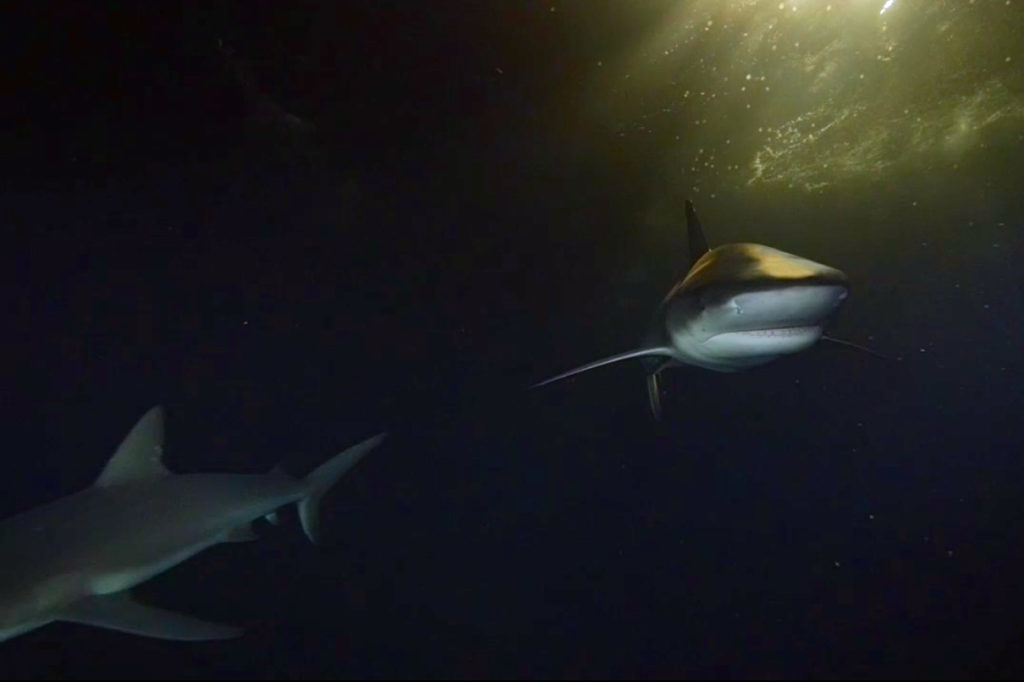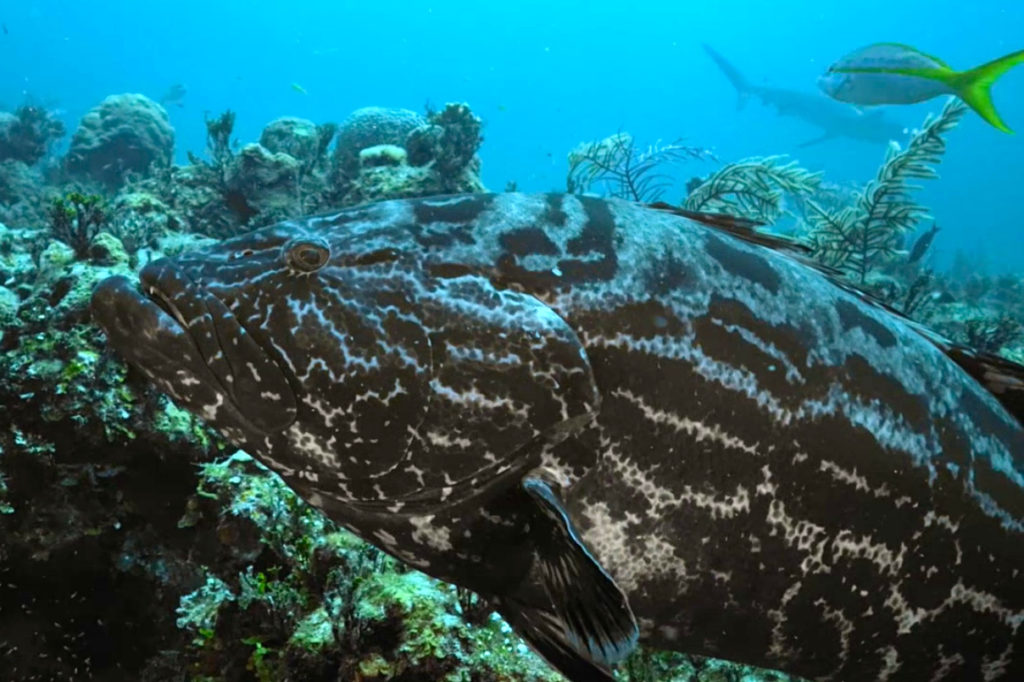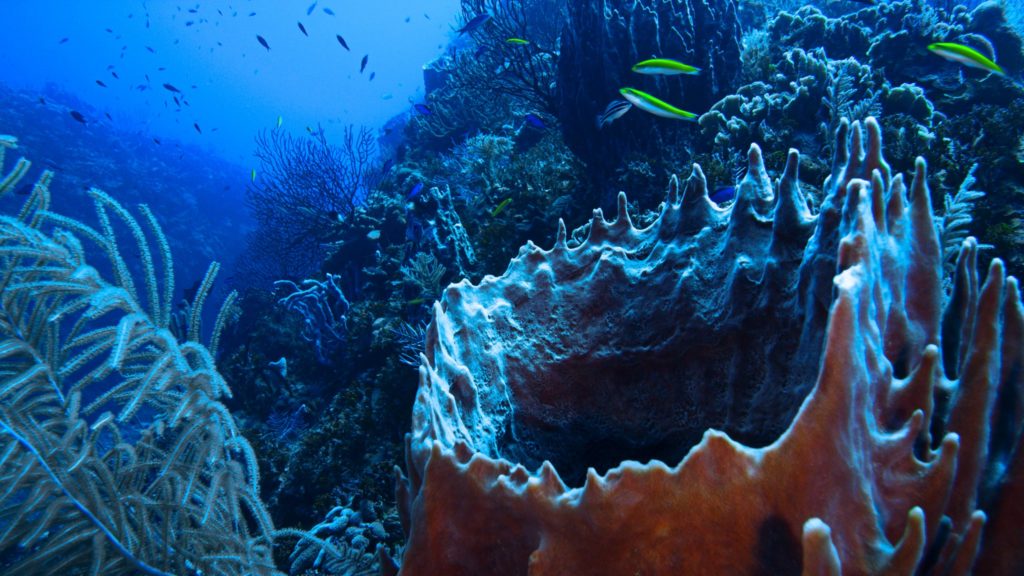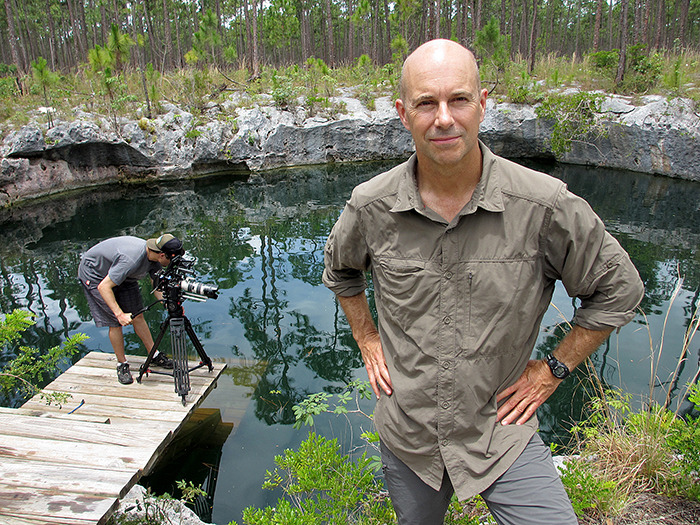BahamaBlueTV: Diving with Sharks at Night
Interview with Mark Rackley cameraman and freediver/shark diver
As one of the most extreme underwater cameraman in the world, Mark Rackley, an experienced freediver, can hold his breath for over five minutes to depths of up to 150ft! Rackley likes to get up close and personal with his favourite underwater subject: the shark. Rackley is not only a fearless shark diver, he is also their advocate, and wants to dispel the misconceptions surrounding this misunderstood sea ‘monster’. Mark worked underwater for Bahama Blue filming reef sharks and reveals what it was like to interact with these ancient creatures in the depths of the Bahamian ocean, after dark.
What was it like diving with sharks at night?
It was great! An unbelievable experience to have all those Caribbeans (sharks) around. Any time you are working with wild animals, it gets crazy, there are all kinds of different scenarios you go through. It’s definitely more challenging at night because they can see you but you can’t see them. It’s basically pitch black at night and you just have your personal lighting. You can only see the creatures that enter into the dome of the light, everything else is shadowed.
What role did the local Bahamian community play?
They were a great help and indispensable to have with us. We worked with a local charter, Stuart’s Cove. It was a challenging shoot but so much fun being in the water and the whole crew was helpful. That makes it a lot easier when everybody is putting their heads together to solve problems as we surfaced.
Were there any surprises during the shoot?
The big Black Groupers! 60 pounds plus! They were getting cleaned at a cleaning station. That was probably the most exciting event. I am a spear fisherman, but you don’t often see that. To get up close just see how beautiful they can be…wow!
The grouper fish lives in the drop offs in the Bahamas. It was amazing to see sharks and groupers swimming together.
Why do you like shark diving?
I have done this my whole life and will continue. I like the excitement. There is something new and different every day. People enjoy watching the footage I take and I like watching it too!
It’s a great way to connect with the environment and this unique ecosystem.
What are the major misconceptions people have about sharks?
Some people are afraid to jump in the water because they think a shark is just going to bite them. But that isn’t the case at all. They are after food, not because they have a malicious intent to kill a human. That is the biggest misconception.
They each also have their own personalities, some are definitely friendlier than others.
What fascinates you about sharks?
First of all, all of the animals in the water are fascinating, but yeah sharks are so precise at what it does, and interesting looking. The way it swims through the water is just a beautiful!
How did you feel swimming in the dark with sharks?
It’s a whole different feeling. You kind of get beside yourself and ask, “Is this for real?” I don’t take doing this for granted, not one day. There are consequences and dangers every time I get in the water.
How can people learn to respect sharks?
By enjoying the stuff that Bahama Blue is doing, this visual documenting the Bahamas makes it real for people. That helps.
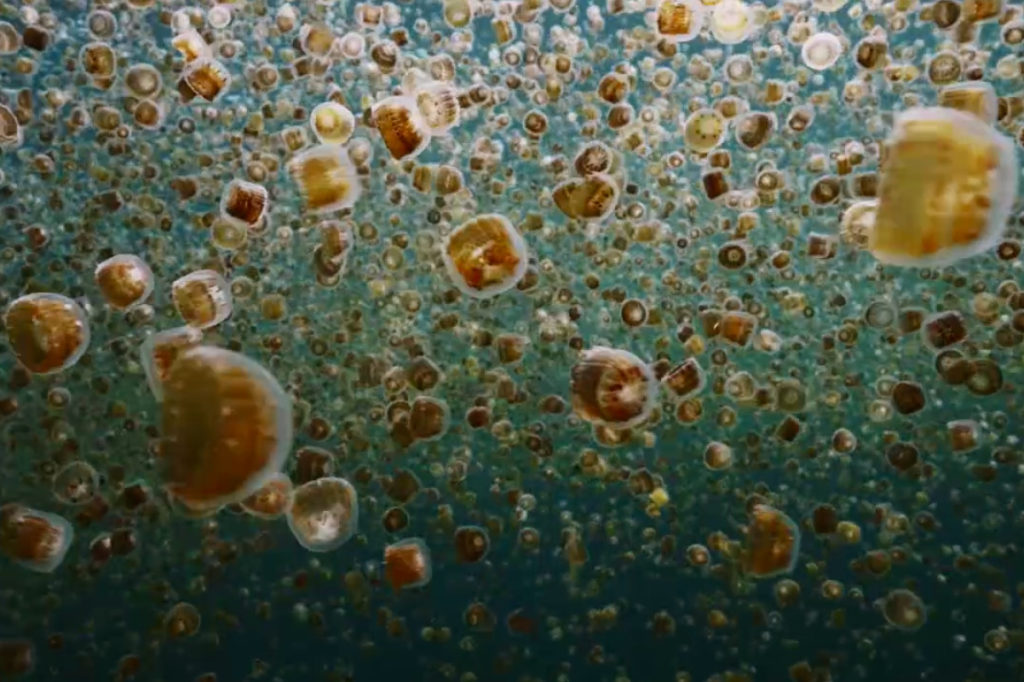
Thanks Mark! More about Mark Rackley@ www.markrackleyproductions.com
Experience day and night on a CORAL reef colony, and find out who is best hidden away when the sun goes down and the come sharks out!
Bahama Blue is a six-part documentary series created by award-winning producers Ian Herring and Maija Leivo of Parallax Film Productions. Bahama Blue airs in Canada May on the Love Nature channel and also on Animal Planet around the world.

